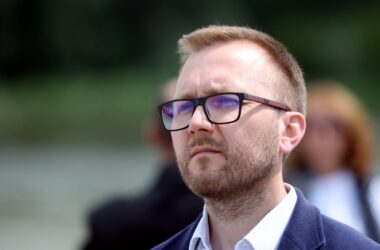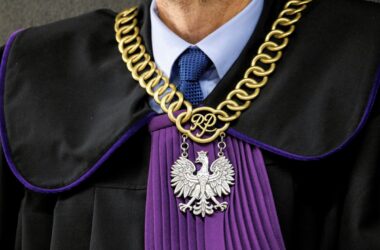Polish prosecutor Waldemar Żurek has asked the Constitutional Tribunal to lift immunity for former national prosecutor Bogdan Święczkowski over allegations involving Pegasus surveillance and 15 alleged stolen DVDs, which Święczkowski denies.
Prosecutor Żurek Seeks Removal of Święczkowski’s Immunity
On Tuesday, prosecutor Waldemar Żurek submitted to the Constitutional Tribunal a petition demanding the removal of immunity from former chief prosecutor Bogdan Święczkowski. The request is linked to a probe into alleged misuse of Pegasus spyware. Prosecutors claim that while serving as national prosecutor from 2016 to 2022, Święczkowski exceeded his authority by ordering a review of operations conducted in 2019 against opposition politician Roman Giertych. They also allege that Święczkowski instructed the creation of copies from Giertych’s phone, allegedly involving 15 DVDs containing confidential case documents.
Święczkowski Denies Misconduct
In a statement, Święczkowski dismissed the petition as a “political farce” aimed at harming government officials. He asserted that all decisions and orders issued during his tenure as national prosecutor were lawful and within the scope of the Prosecution Law. Święczkowski further claimed that Prosecution Officer Paweł Wilkoszewski was fully authorized to conduct operational checks, and that any copied material was produced in accordance with the law and subsequently destroyed properly.
Wilkoszewski Confirms Legal Conduct
Prosecutor Paweł Wilkoszewski, interviewed by Radio Wnet, agreed that both he and former chief prosecutor Bogdan Święczkowski acted in compliance with the Prosecution Law and its regulations. He stressed that the operations he supervised were lawful and aligned with statutory requirements.
Giertych Accuses Pegasus Use of the Spyware
Roman Giertych, a member of the opposition lawmaker, responded on the X platform to the allegations. He claimed that prosecutors intended to charge Święczkowski and Wilkoszewski for copying recordings made by Pegasus on his phone. Giertych suggested that the objective of the alleged surveillance was to obtain information about his professional, personal, and political activities, which he said was the source of the recordings later broadcast on TV Republika.










